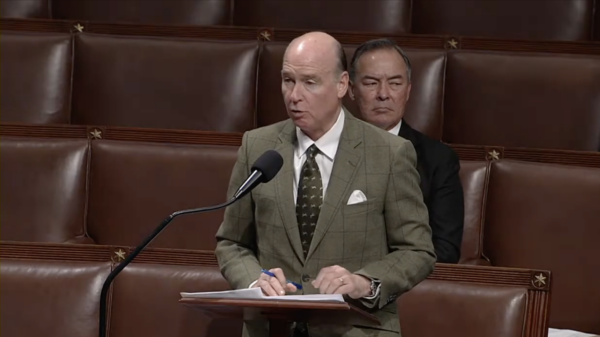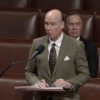Alabama Senators Katie Britt and Tommy Tuberville signed a bicameral letter to the Government Accountability Office last week.
The letter, signed by 110 additional members of Congress, urged the division to publish a report on “updated information on federal funding for Federally Qualified Health Centers, Planned Parenthood Federation of America, International Planned Parenthood Federation, MSI Reproductive Choices, and four domestic abortion providers.” The letter requests that the report cover fiscal years 2022-2024.
The lawmakers emphasized the need for greater transparency in how federal funds are spent, particularly regarding taxpayer dollars allocated to abortion-related services. The letter reflects concerns raised by the previous GAO report, which estimated nearly $2 billion in federal funds were directed to funding abortion services between 2019 and 2021. Starting in 1977, the Hyde Amendment banned the use of any federal funds or federally matched funds for abortions, a cause that Britt has been a staunch advocate of.
The GAO has previously prepared congressionally requested reports on federal funding of this nature for these organizations. The GAO has been periodically reporting since 1995 on federal funding provided to domestic and international organizations that deliver preventive health care services, including sexual and reproductive health services, family planning and HIV/AIDS treatment and prevention.
“The information sought in this inquiry is instrumental for policymakers and the public alike. It is our hope that this report will provide greater insight as Congress considers funding levels and provides increased transparency and openness for our constituencies and the general public,” the letter reads.
Between fiscal years 2019-2021, the GAO reported that Federally Qualified Health Centers received approximately $21.69 billion in grants from the Department of Health and Human Services, along with $53.12 billion in payments through public health coverage programs like Medicare, Medicaid, and CHIP. Additionally, 1,150 Health Centers received about $2.47 billion in Paycheck Protection Program loans, which were largely forgiven. Planned Parenthood affiliates received $148 million in HHS grants, $1.54 billion in public health coverage payments and $89 million in PPP loans, which were also forgiven.
Additionally, International organizations, such as the International Planned Parenthood Federation and MSI Reproductive Choices, received funding from the U.S. Agency for International Development, with the former receiving $2.03 million and the latter $1.35 million. Domestic regional providers of health-related services received approximately $108 million in public health coverage payments.
The legislators argued that this updated information would provide valuable insight as Congress debates future funding levels and seeks to ensure greater accountability for the use of federal taxpayer dollars.
“It is our hope that this report will provide greater insight as Congress considers funding levels and provides increased transparency and openness for our constituencies and the general public,” the letter concludes.



















































